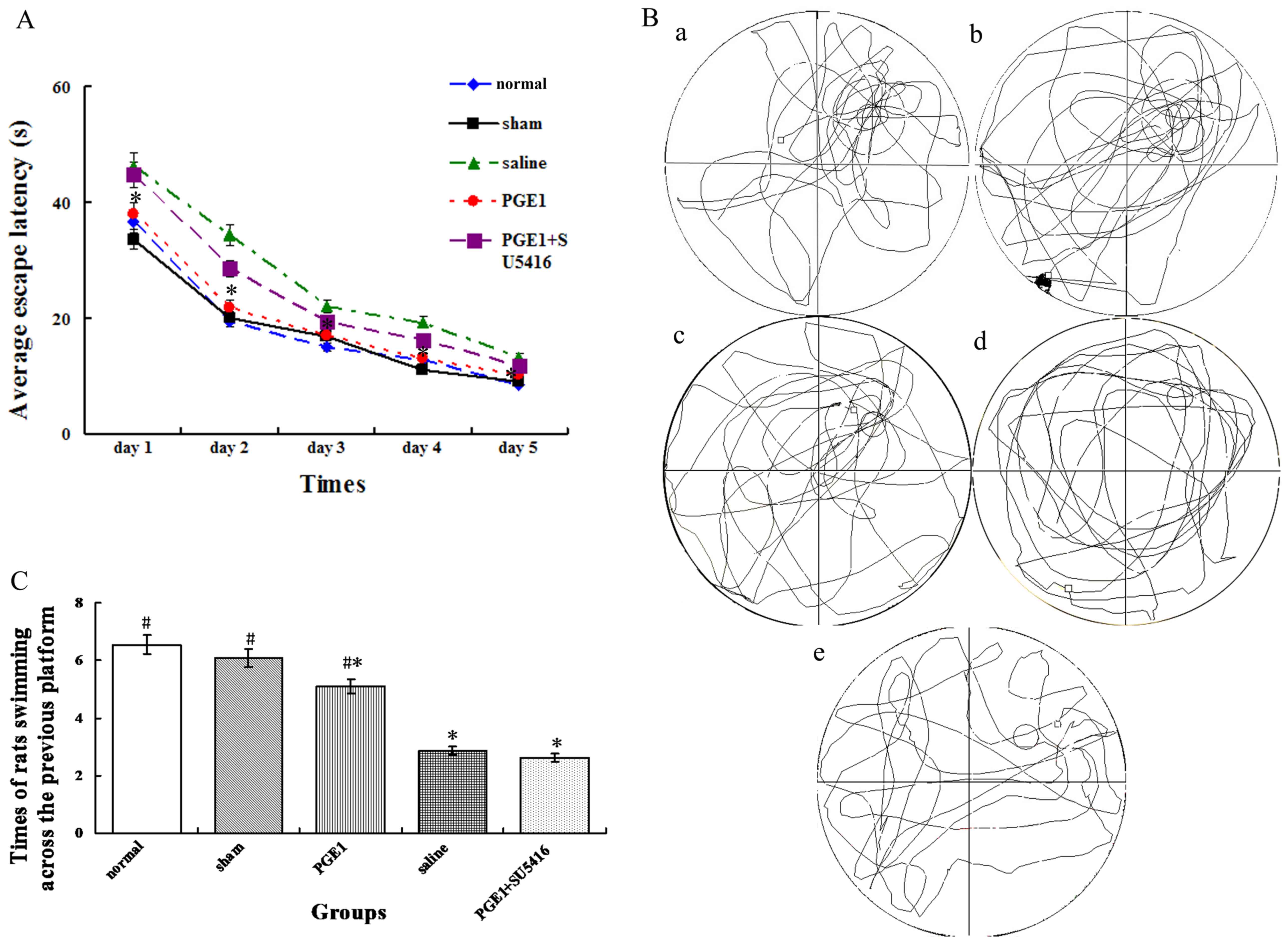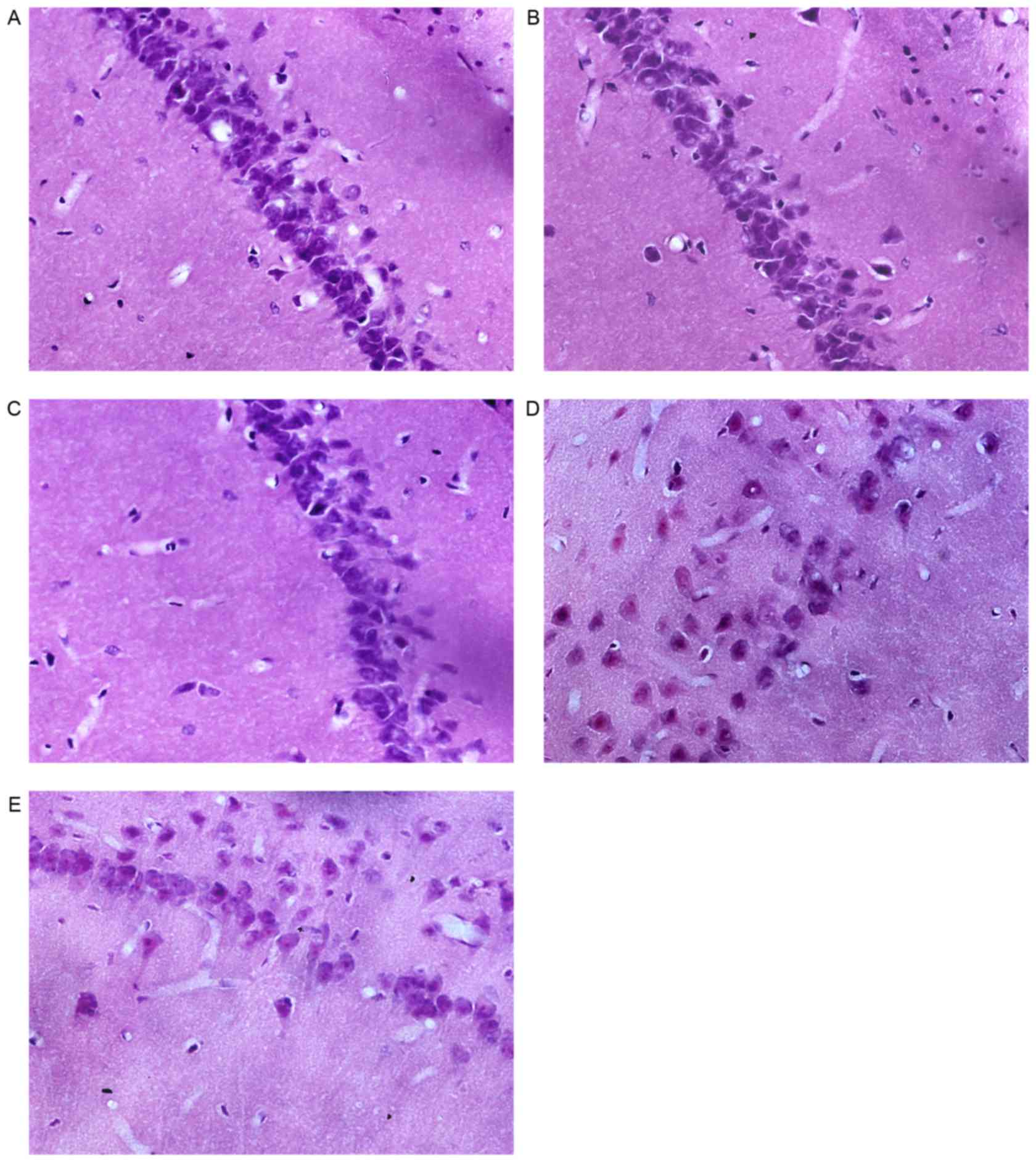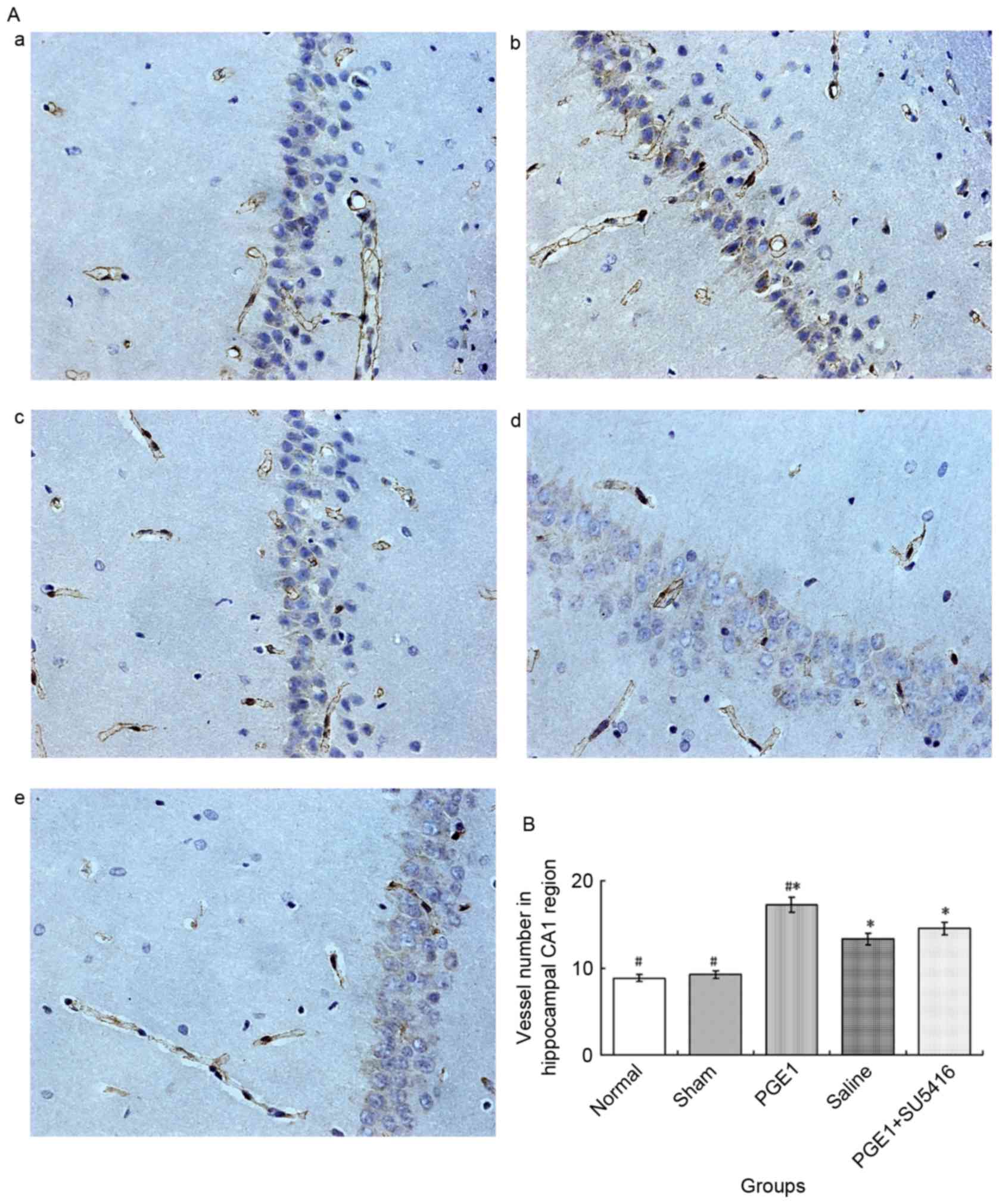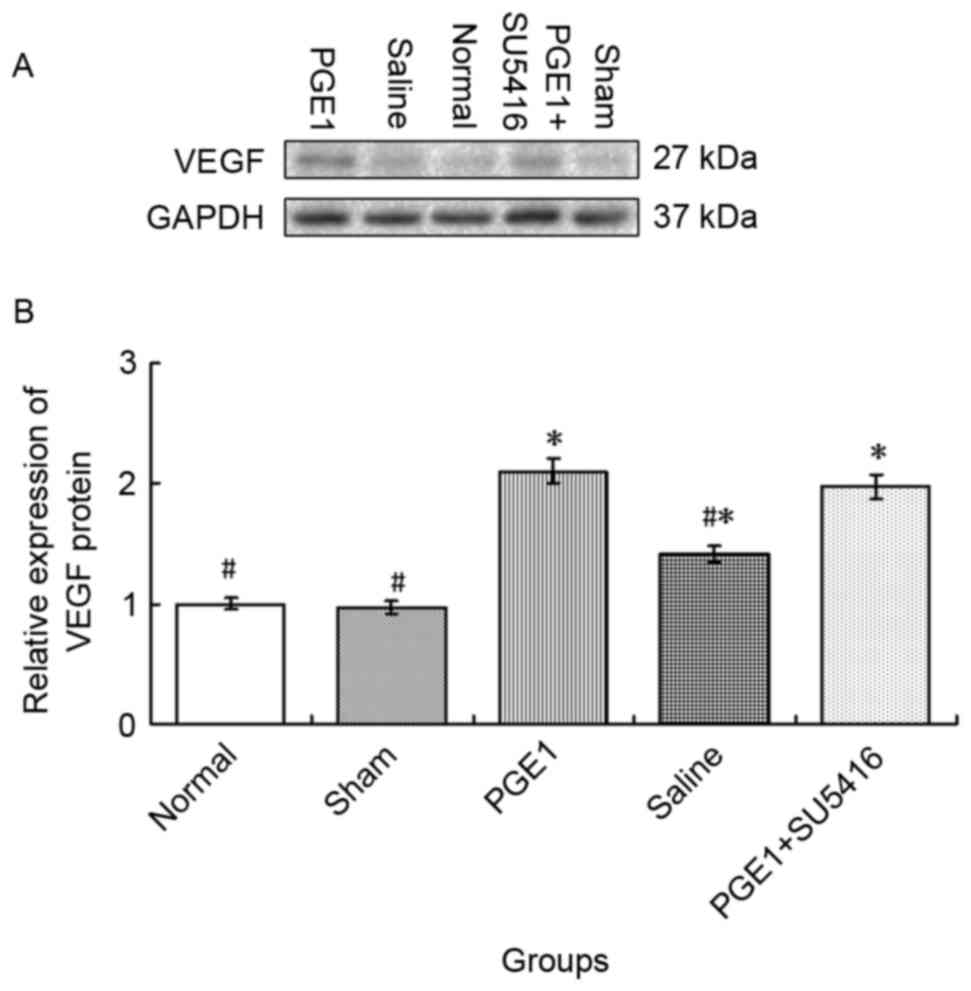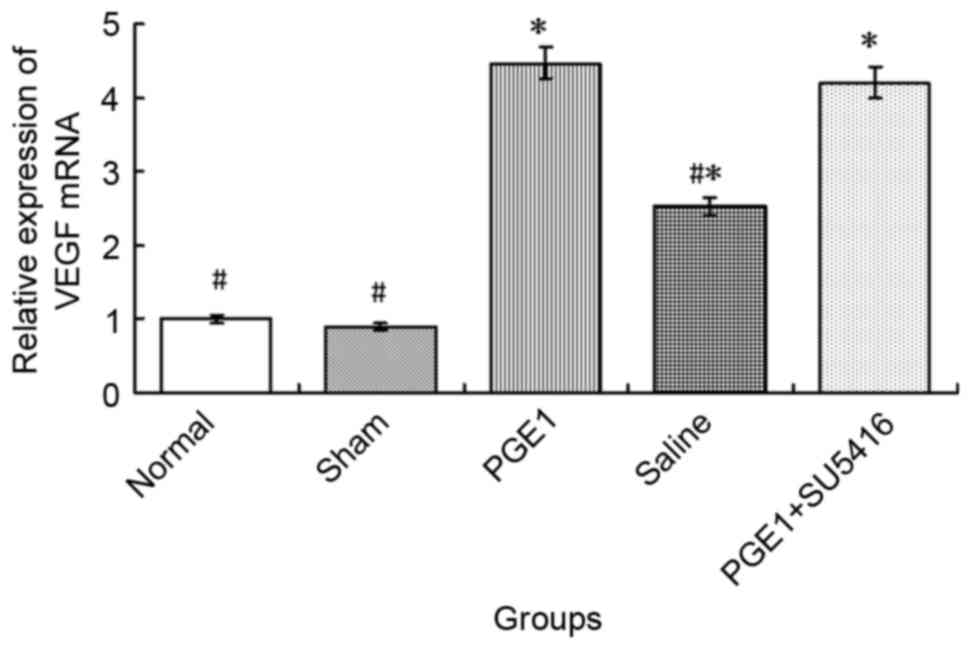|
1
|
Fratiglioni L, Launer LJ, Andersen K,
Breteler MM, Copeland JR, Dartigues JF, Lobo A, Martinez-Lage J,
Soininen H and Hofman A: Incidence of dementia and major subtypes
in Europe: A collaborative study of population-based cohorts.
Neurologic Diseases in the Elderly Research Group. Neurology.
54:(11 Suppl 5). S10–S15. 2000.PubMed/NCBI
|
|
2
|
Chan KY, Wang W, Wu JJ, Liu L, Theodoratou
E, Car J, Middleton L, Russ TC, Deary IJ, Campbell H, et al:
Epidemiology of Alzheimer's disease and other forms of dementia in
China, 1990–2010: A systematic review and analysis. Lancet.
381:2016–2023. 2013. View Article : Google Scholar : PubMed/NCBI
|
|
3
|
Østergaard L, Engedal TS, Moreton F,
Hansen MB, Wardlaw JM, Dalkara T, Markus HS and Muir KW: Cerebral
small vessel disease: Capillary pathways to stroke and cognitive
decline. J Cereb Blood Flow Metab. 36:302–325. 2016. View Article : Google Scholar : PubMed/NCBI
|
|
4
|
Liu H and Zhang J: Cerebral hypoperfusion
and cognitive impairment: The pathogenic role of vascular oxidative
stress. Int J Neurosci. 122:494–499. 2012. View Article : Google Scholar : PubMed/NCBI
|
|
5
|
Helman AM and Murphy MP: Vascular
cognitive impairment: Modeling a critical neurologic disease in
vitro and in vivo. Biochim Biophys Acta. 1862:975–982. 2016.
View Article : Google Scholar : PubMed/NCBI
|
|
6
|
Lu H, Wang Y, He X, Yuan F, Lin X, Xie B,
Tang G, Huang J, Tang Y, Jin K, et al: Netrin-1 hyperexpression in
mouse brain promotes angiogenesis and long-term neurological
recovery after transient focal ischemia. Stroke. 43:838–843. 2012.
View Article : Google Scholar : PubMed/NCBI
|
|
7
|
Wegener S, Gottschalk B, Jovanovic V, Knab
R, Fiebach JB, Schellinger PD, Kucinski T, Jungehülsing GJ,
Brunecker P, Müller B, et al: Transient ischemic attacks before
ischemic stroke: Preconditioning the human brain? A multicenter
magnetic resonance imaging study. Stroke. 35:616–621. 2004.
View Article : Google Scholar : PubMed/NCBI
|
|
8
|
Kilic E, Kilic U, Wang Y, Bassetti CL,
Marti HH and Hermann DM: The phosphatidylinositol-3 kinase/Akt
pathway mediates VEGF's neuroprotective activity and induces blood
brain barrier permeability after focal cerebral ischemia. FASEB J.
20:1185–1187. 2006. View Article : Google Scholar : PubMed/NCBI
|
|
9
|
Ferrara N: Vascular endothelial growth
factor: Basic science and clinical progress. Endocr Rev.
25:581–611. 2004. View Article : Google Scholar : PubMed/NCBI
|
|
10
|
Schror K and Hohlfeld T: Mechanisms of
anti-ischemic action of prostaglandin E1 in peripheral arterial
occlusive disease. Vasa. 33:119–124. 2004. View Article : Google Scholar : PubMed/NCBI
|
|
11
|
Fang W, Li H, Zhou L, Su L, Liang Y and Mu
Y: Effect of prostaglandin E1 on TNF-induced vascular inflammation
in human umbilical vein endothelial cells. Can J Physiol Pharmacol.
88:576–583. 2010. View
Article : Google Scholar : PubMed/NCBI
|
|
12
|
Tang J, Hua Y, Su J, Zhang P, Zhu X, Wu L,
Niu Q, Xiao H and Ding X: Expression of VEGF and neural repair
after alprostadil treatment in a rat model of sciatic nerve crush
injury. Neurol India. 57:387–394. 2009. View Article : Google Scholar : PubMed/NCBI
|
|
13
|
Ling L, Zhang S, Ji Z, Huang H, Yao G,
Wang M, He R, Deng W and Fang L: Therapeutic effects of
lipo-prostaglandin E1 on angiogenesis and neurogenesis after
ischemic stroke in rats. Int J Neurosci. 126:469–477. 2016.
View Article : Google Scholar : PubMed/NCBI
|
|
14
|
Inoue H, Aihara M, Tomioka M and Watabe Y:
Specific enhancement of vascular endothelial growth factor (VEGF)
production in ischemic region by alprostadil-potential therapeutic
application in pharmaceutical regenerative medicine. J Pharmacol
Sci. 122:158–161. 2013. View Article : Google Scholar : PubMed/NCBI
|
|
15
|
Zhang ZH, Shi GX, Li QQ, Wang YJ, Li P,
Zhao JX, Yang JW and Liu CZ: Comparison of cognitive performance
between two rat models of vascular dementia. Int J Neurosci.
124:818–823. 2014. View Article : Google Scholar : PubMed/NCBI
|
|
16
|
Paxinos G and Franklin K: Paxinos and
Franklin's the Mouse Brain in Stereotaxic Coordinates4th. Academic
Press; San Diego, CA: 2001
|
|
17
|
Fujita Y, Ihara M, Ushiki T, Hirai H,
Kizaka-Kondoh S, Hiraoka M, Ito H and Takahashi R: Early protective
effect of bone marrow mononuclear cells against ischemic white
matter damage through augmentation of cerebral blood flow. Stroke.
41:2938–2943. 2010. View Article : Google Scholar : PubMed/NCBI
|
|
18
|
Xie W, Zhu D, Ji L, Tian M, Xu C and Shi
J: Angiotensin-(1–7) improves cognitive function in rats with
chronic cerebral hypoperfusion. Brain Res. 1573:44–53. 2014.
View Article : Google Scholar : PubMed/NCBI
|
|
19
|
Livak KJ and Schmittgen TD: Analysis of
relative gene expression data using real-time quantitative PCR and
the 2(−Delta Delta C(T)) method. Methods. 25:402–408. 2001.
View Article : Google Scholar : PubMed/NCBI
|
|
20
|
Ma C, Wu G, Wang Z, Wang P, Wu L, Zhu G
and Zhao H: Effects of chronic sleep deprivation on the
extracellular signal-regulated kinase pathway in the
temporomandibular joint of rats. PLoS One. 9:e1075442014.
View Article : Google Scholar : PubMed/NCBI
|
|
21
|
García PL Rodríguez and García D
Rodríguez: Diagnosis of vascular cognitive impairment and its main
categories. Neurologia. 30:223–239. 2015.(In English, Spanish).
PubMed/NCBI
|
|
22
|
Henke K: A model for memory systems based
on processing modes rather than consciousness. Nat Rev Neurosci.
11:523–532. 2010. View
Article : Google Scholar : PubMed/NCBI
|
|
23
|
Chen H, Iinuma M, Onozuka M and Kubo KY:
Chewing maintains hippocampus-dependent cognitive function. Int J
Med Sci. 12:502–509. 2015. View Article : Google Scholar : PubMed/NCBI
|
|
24
|
Jiwa NS, Garrard P and Hainsworth AH:
Experimental models of vascular dementia and vascular cognitive
impairment: A systematic review. J Neurochem. 115:814–828. 2010.
View Article : Google Scholar : PubMed/NCBI
|
|
25
|
Miki K, Ishibashi S, Sun L, Xu H, Ohashi
W, Kuroiwa T and Mizusawa H: Intensity of chronic cerebral
hypoperfusion determines white/gray matter injury and
cognitive/motor dysfunction in mice. J Neurosci Res. 87:1270–1281.
2009. View Article : Google Scholar : PubMed/NCBI
|
|
26
|
Buzsáki G and Moser EI: Memory, navigation
and theta rhythm in the hippocampal-entorhinal system. Nat
Neurosci. 16:130–138. 2013. View
Article : Google Scholar : PubMed/NCBI
|
|
27
|
Liu HX, Zhang JJ, Zheng P and Zhang Y:
Altered expression of MAP-2, GAP-43, and synaptophysin in the
hippocampus of rats with chronic cerebral hypoperfusion correlates
with cognitive impairment. Brain Res Mol Brain Res. 139:169–177.
2005. View Article : Google Scholar : PubMed/NCBI
|
|
28
|
Xi Y, Wang M, Zhang W, Bai M, Du Y, Zhang
Z, Li Z and Miao J: Neuronal damage, central cholinergic
dysfunction and oxidative damage correlate with cognitive deficits
in rats with chronic cerebral hypoperfusion. Neurobiol Learn Mem.
109:7–19. 2014. View Article : Google Scholar : PubMed/NCBI
|
|
29
|
Qu J, Zhou Q, Du Y, Zhang W, Bai M, Zhang
Z, Xi Y, Li Z and Miao J: Rutin protects against cognitive deficits
and brain damage in rats with chronic cerebral hypoperfusion. Br J
Pharmacol. 171:3702–3715. 2014. View Article : Google Scholar : PubMed/NCBI
|
|
30
|
Wang J, Zhang HY and Tang XC: Huperzine a
improves chronic inflammation and cognitive decline in rats with
cerebral hypoperfusion. J Neurosci Res. 88:807–815. 2010.PubMed/NCBI
|
|
31
|
Slevin M, Kumar P, Gaffney J, Kumar S and
Krupinski J: Can angiogenesis be exploited to improve stroke
outcome? Mechanisms and therapeutic potential. Clin Sci (Lond).
111:171–183. 2006. View Article : Google Scholar : PubMed/NCBI
|
|
32
|
Cao M, Ke K, Sun H and Robertson A:
Effects of prostaglandin E1 on perihematomal tissue after
hypertensive intracerebral hemorrhage. Acta Neurol Taiwan.
20:172–181. 2011.PubMed/NCBI
|
|
33
|
Sheng R, Zhang LS, Han R, Gao B, Liu XQ
and Qin ZH: Combined prostaglandin E1 and lithium exert potent
neuroprotection in a rat model of cerebral ischemia. Acta pharmacol
Sin. 32:303–310. 2011. View Article : Google Scholar : PubMed/NCBI
|
|
34
|
Keskin U, Totan Y, Karadağ R, Erdurmuş M
and Aydin B: Inhibitory effects of SU5416, a selective vascular
endothelial growth factor receptor tyrosine kinase inhibitor, on
experimental corneal neovascularization. Ophthalmic Res. 47:13–18.
2012. View Article : Google Scholar : PubMed/NCBI
|
|
35
|
Webber MJ, Tongers J, Newcomb CJ,
Marquardt KT, Bauersachs J, Losordo DW and Stupp SI: Supramolecular
nanostructures that mimic VEGF as a strategy for ischemic tissue
repair. Proc Natl Acad Sci USA. 108:13438–13443. 2011. View Article : Google Scholar : PubMed/NCBI
|
|
36
|
Zacchigna S, Lambrechts D and Carmeliet P:
Neurovascular signalling defects in neurodegeneration. Nat Rev
Neurosci. 9:169–181. 2008. View Article : Google Scholar : PubMed/NCBI
|
|
37
|
Storkebaum E, Lambrechts D, Dewerchin M,
Moreno-Murciano MP, Appelmans S, Oh H, Van Damme P, Rutten B, Man
WY, De Mol M, et al: Treatment of motoneuron degeneration by
intracerebroventriculsar delivery of VEGF in a rat model of ALS.
Nat Neurosci. 8:85–92. 2005. View
Article : Google Scholar : PubMed/NCBI
|
|
38
|
Cao L, Jiao X, Zuzga DS, Liu Y, Fong DM,
Young D and During MJ: VEGF links hippocampal activity with
neurogenesis, learning and memory. Nat Genet. 36:827–835. 2004.
View Article : Google Scholar : PubMed/NCBI
|
|
39
|
Schänzer A, Wachs FP, Wilhelm D, Acker T,
Cooper-Kuhn C, Beck H, Winkler J, Aigner L, Plate KH and Kuhn HG:
Direct stimulation of adult neural stem cells in vitro and
neurogenesis in vivo by vascular endothelial growth factor. Brain
Pathol. 14:237–248. 2004. View Article : Google Scholar : PubMed/NCBI
|
|
40
|
Carmeliet P: Blood vessels and nerves:
Common signals, pathways and diseases. Nat Rev Genet. 4:710–720.
2003. View Article : Google Scholar : PubMed/NCBI
|















